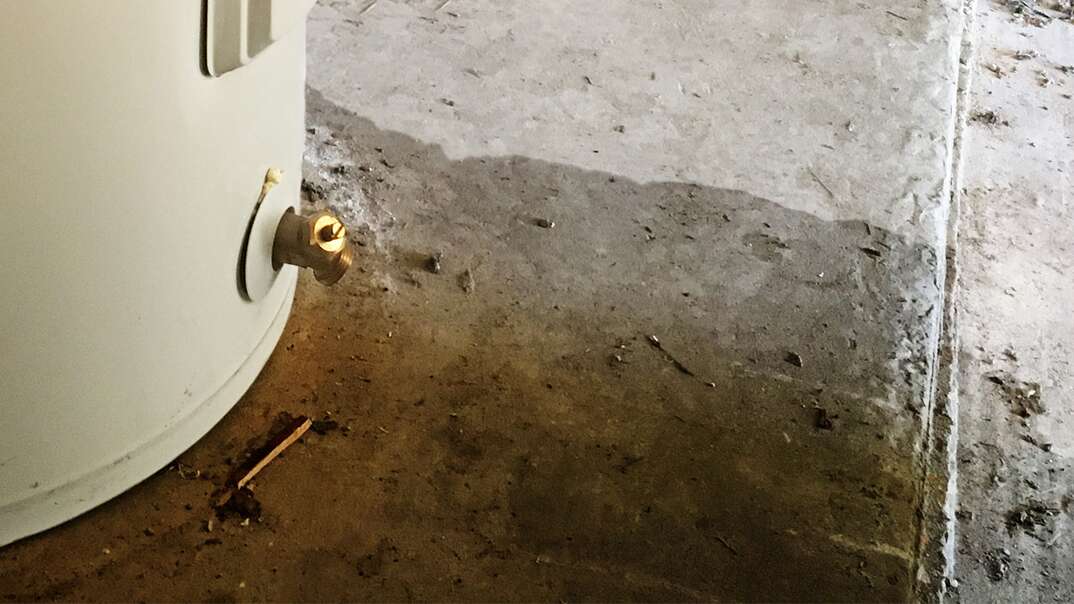How to Tell When It's Time to Replace Your Water Heater

You bought a house for a lot of reasons — the financial benefit, the chance to call the place your own or maybe even the opportunity to remodel it to your liking. But you probably didn’t buy a house because you’re terribly excited about replacing your water heater.
Replacing a water heater involves a lot of inconvenience and expense. However, knowing when it's time to replace your water heater can potentially save you from astronomically high energy bills — and freezing cold showers.
How Long Does a Water Heater Typically Last?
How long you can expect your water heater to last largely depends on whether you have a traditional tanked model or a more modern tankless system. Tanked water heaters have a central tank that stores hot water to supply your fixtures when you turn on the shower or hot faucet. They're less expensive to purchase and install than tankless systems but more prone to age-related damage.
Your water tank contains an anode rod that attracts particles that could otherwise corrode the inside of the tank. However, the rod itself corrodes over time, leaving your tank lining vulnerable to damage. Therefore, tanked water heaters last for around 8 to 12 years. Other factors, such as the brand and quality of your heater, can also affect how long it lasts.
Tankless water heaters work differently from tanked models because they don't have a storage tank. Instead, they supply hot water on demand whenever you turn on a hot faucet. Not having to heat water constantly places less pressure on the system, but tankless water heaters still develop corrosion eventually. However, a well-maintained system should last at least 20 years.
You don't necessarily need to rush out and buy a replacement water heater once it reaches the end of its projected lifespan, provided it's still functioning well. However, it's always worth preparing for the financial expense of replacing an old unit to avoid unpleasant surprises. You should also keep an eye out for the following symptoms of a faulty water heater, regardless of your system's age.
Leaks
A leaking tankless water heater doesn't always spell doom for your system. Often, fixing leaks is often as simple as tightening pipe connections or hiring a professional to replace the gaskets or O-rings. However, leaks from a tanked system usually indicate that you need to replace your water heater.
Hot water tanks expand and contract regularly, increasing the risk of a major leak over time. You may notice water pooling under or around your unit when this happens. A leaking tank could signal an impending tank burst, so it's best to turn your system off and call a professional plumber as soon as possible.
More Related Articles:
- Calling a Plumber? Here Are the 6 Most Common Plumbing Jobs and How Much They Cost
- 6 Ways to Try to Unclog Your Sink Before You Call a Plumber
- What's in My Plumber's Van?
- Here's How Much It Costs to Remodel a Bathroom
- 6 Tips for Hiring a Plumber
Inadequate Hot Water
If you notice lukewarm or inconsistent temperatures when you take a shower — or worse, ice-cold water — it could be a sign that you need a water heater repair. However, not enough hot water can also signify that your water heater has irreparably deteriorated, especially if you have an older tanked model. Replacing your water heater with a tankless unit could be worth considering, as they're less prone to hot water supply issues.
Discolored Water
Reddish or orange water coming from your fixtures is usually a sign of corrosion in both tanked and tankless water heaters. Whether this means you need a water heater replacement depends on your unit's condition and age. If your water heater is relatively new, a professional can often fix the issue by installing a replacement anode rod. However, it's often more cost-effective to replace your water heater if it's nearing the end of its expected lifespan.
Alarming Noises
Rumbling, banging or clanging sounds coming from a tanked water heater are classic signs of severe corrosion. This issue is relatively unlikely with newly installed units, but you'll likely need to replace your water heater if your system is older.
Increased Energy Bills
A sudden hike in your heating and cooling bills can have several causes, but a worn-out water heater is a common culprit. Both tankless and tanked models become less efficient as the internal components wear out, causing them to work harder to meet your hot water needs and costing more to run. Any unexpected rise in your energy bills is a sign you need to get a professional to examine (and possibly replace) your water heater, especially if it's an old unit.
Water Pressure Problems
In older systems, sediment can accumulate and harden inside the lines coming from your tanked or tankless water heater and cause flow issues. Partial line blockages affect the hot water supply from your unit, and you'll likely notice low or inconsistent water pressure from your fixtures. While some causes of water pressure problems are fixable, you'll need to replace a water heater with severe corrosion or sediment buildup.
Elocal Editorial Content is for educational and entertainment purposes only. Editorial Content should not be used as a substitute for advice from a licensed professional in your state reviewing your issue. Systems, equipment, issues and circumstances vary. Follow the manufacturer's safety precautions. The opinions, beliefs and viewpoints expressed by the eLocal Editorial Team and other third-party content providers do not necessarily reflect the opinions, beliefs and viewpoints of eLocal or its affiliate companies. Use of the Blog is subject to the
Website Terms and Conditions.The eLocal Editorial Team operates independently of eLocal USA's marketing and sales decisions.



